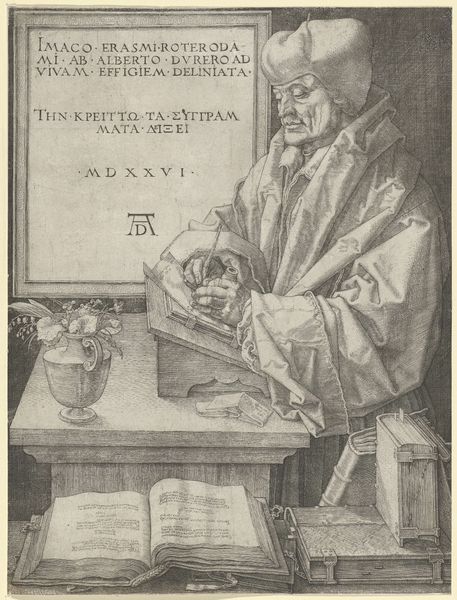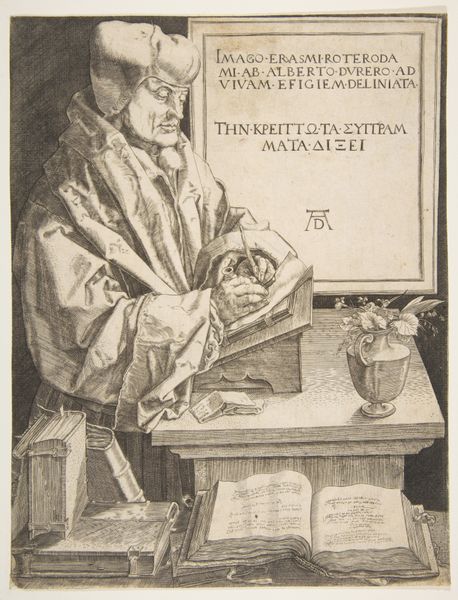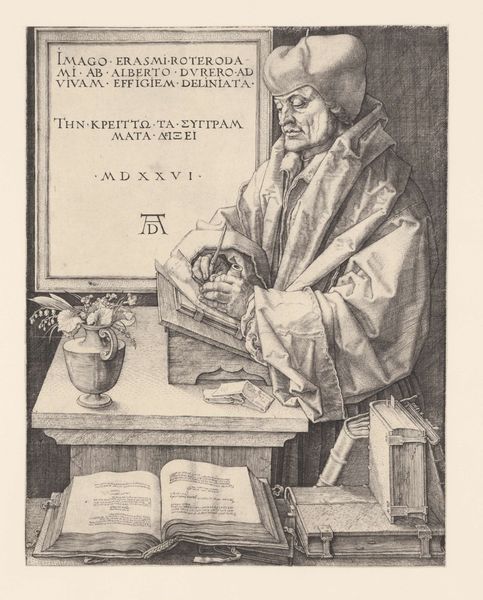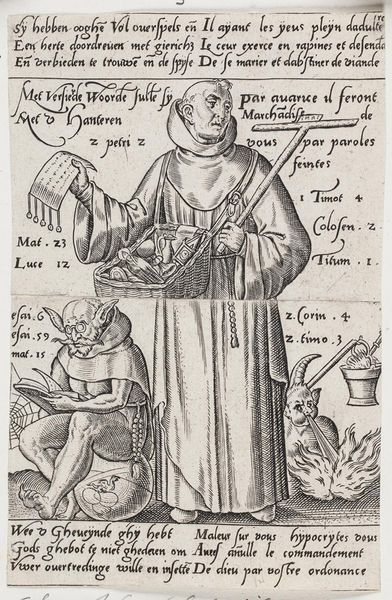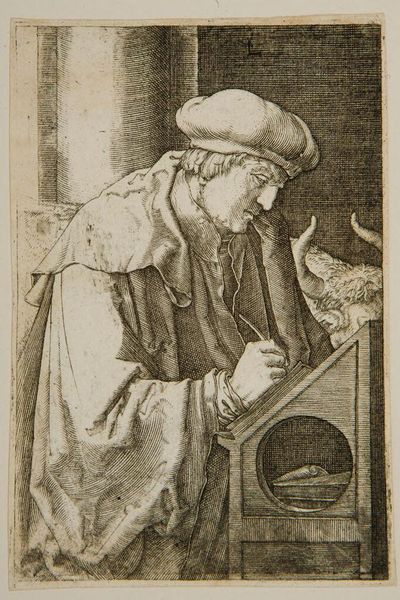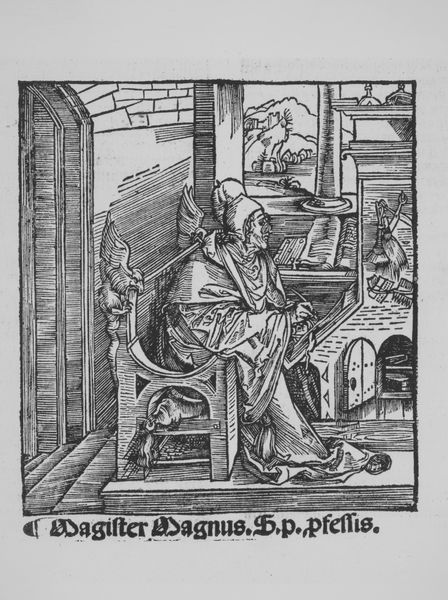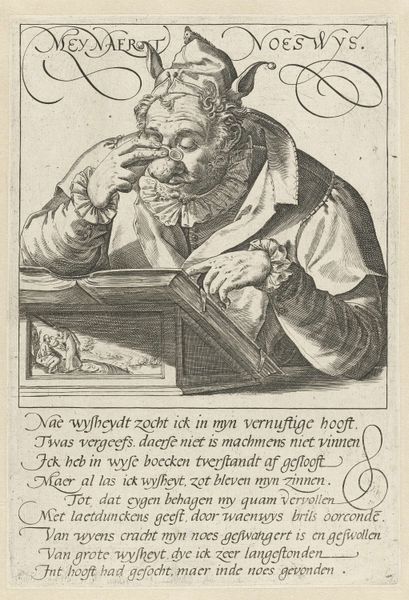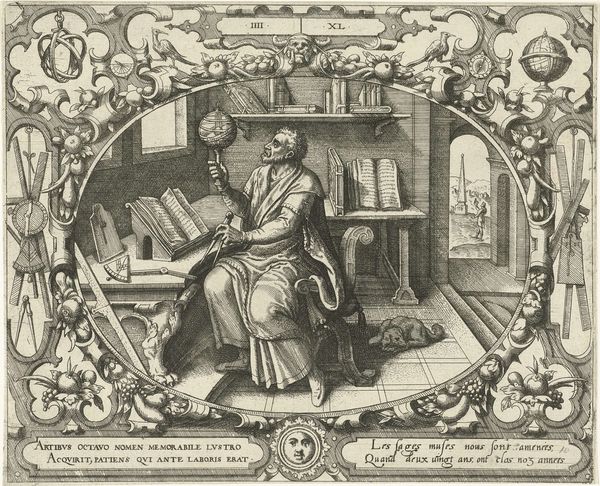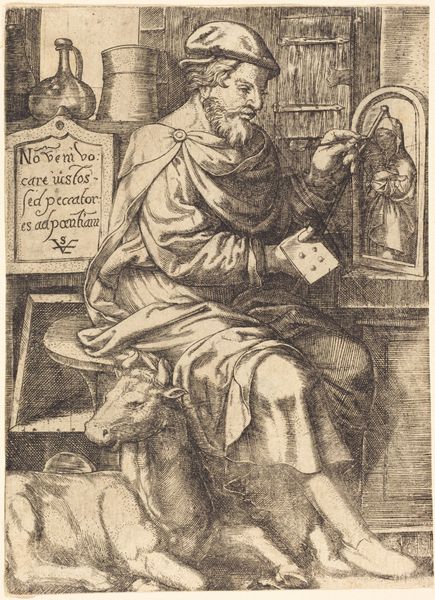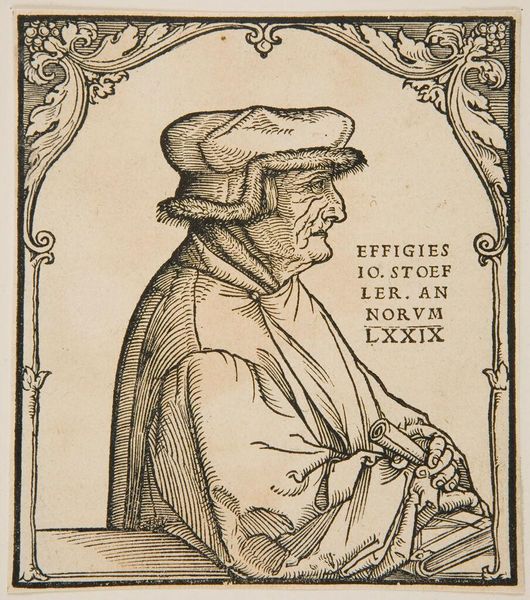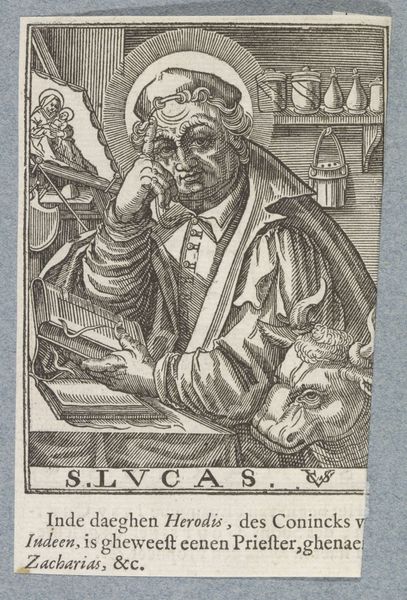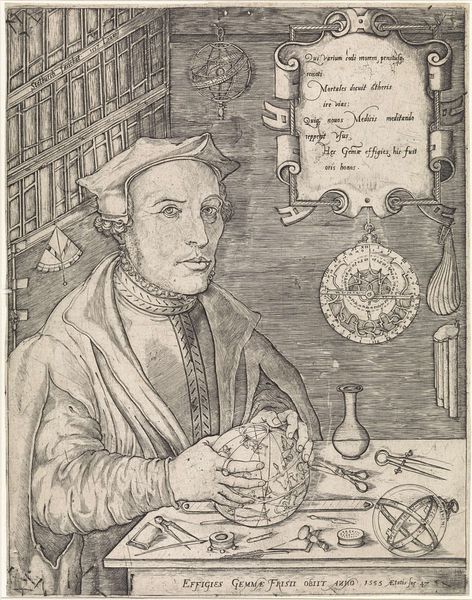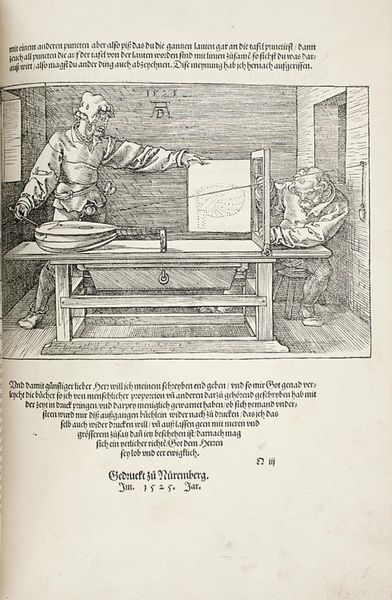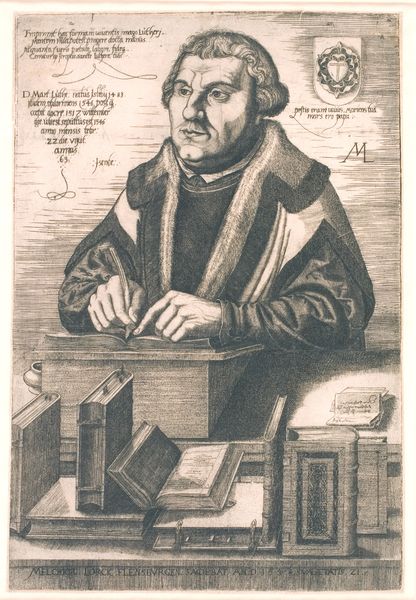
print, engraving
#
portrait
# print
#
line
#
history-painting
#
northern-renaissance
#
engraving
#
realism
Copyright: Public domain
Albrecht Dürer made this print of Desiderius Erasmus in 1526 using the intaglio process of engraving. Look closely and you'll see that Dürer cut lines into a copper plate with a tool called a burin, depositing ink into the grooves. The plate was then pressed onto paper, transferring the image. The density of the lines creates tone and texture. Notice the fine, parallel lines he used to model Erasmus's face and clothing, creating a sense of depth and volume. Printmaking was an emerging industry at this time, a crucial means of disseminating images and ideas, and Dürer was a master of the technique. But the labor involved was intense, requiring immense skill and precision to achieve such detail, and a subtle tonal range. Considering the social context of this artwork highlights how new technologies changed the way images were made, circulated, and consumed, making art more accessible to a wider audience.
Comments
No comments
Be the first to comment and join the conversation on the ultimate creative platform.
